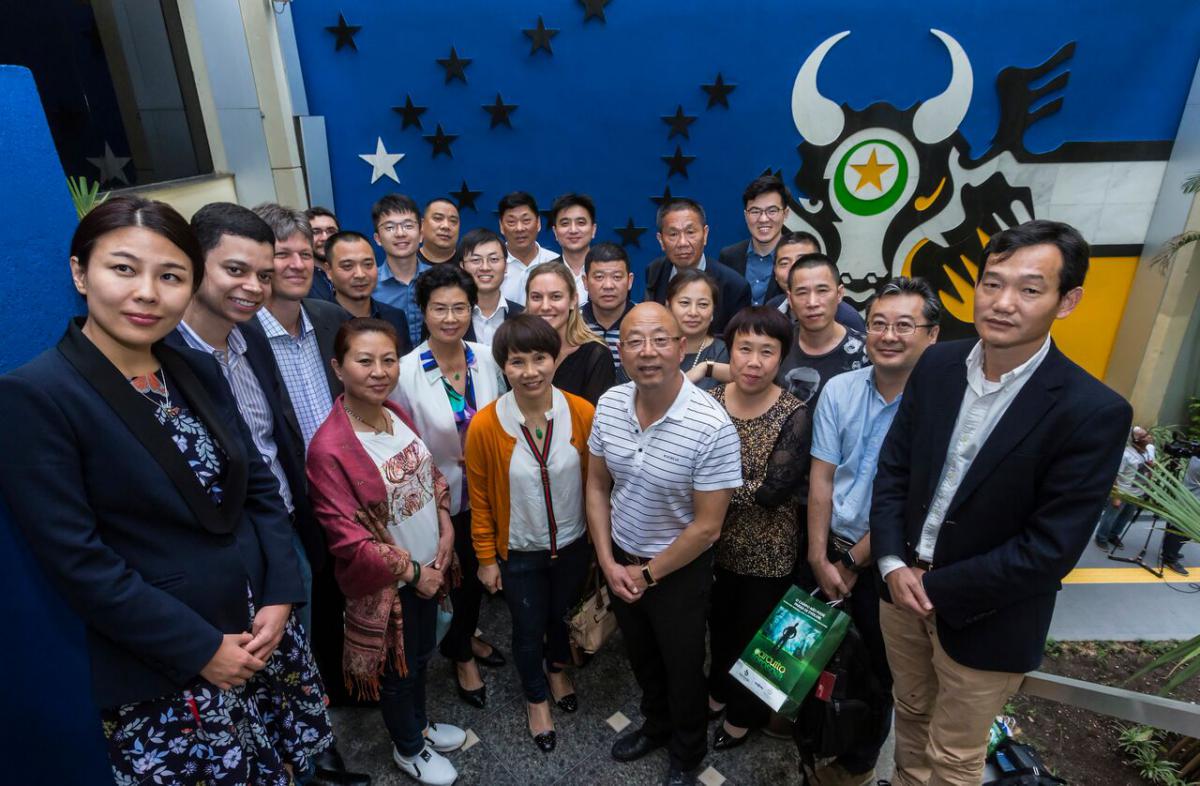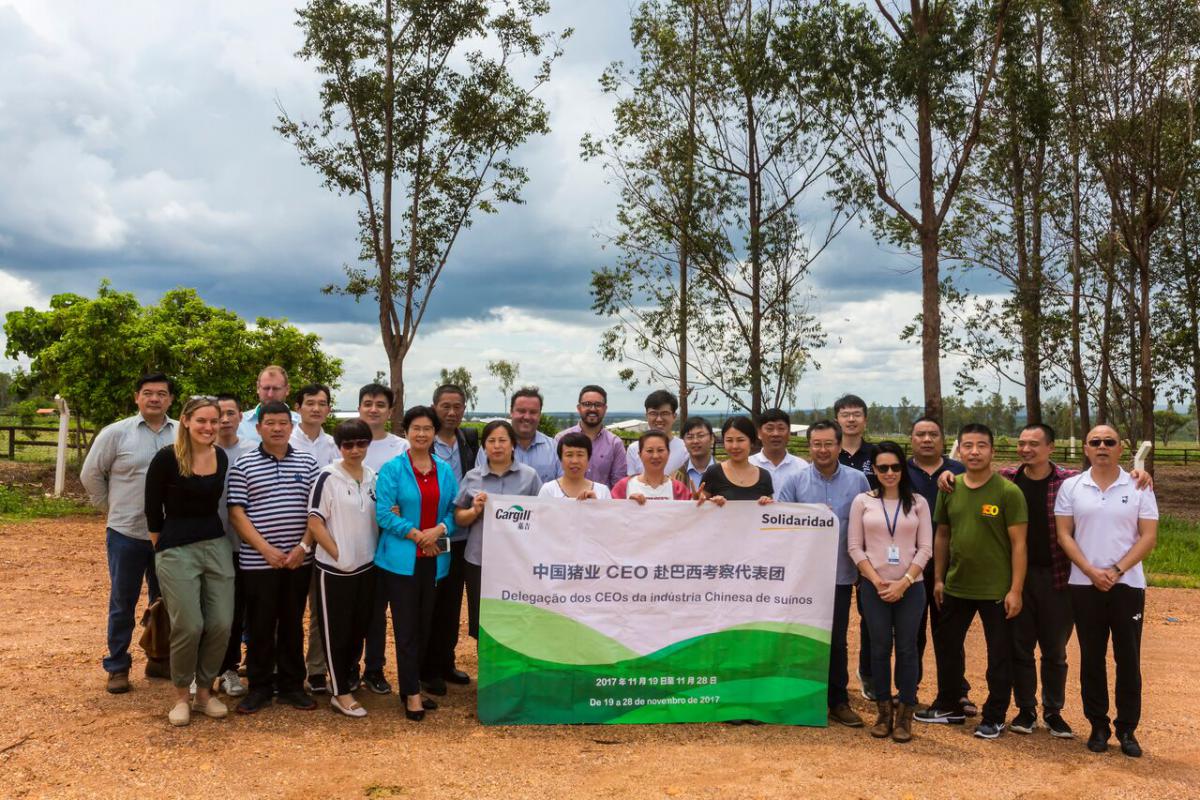
Chinese delegation meets with representatives of Aprosoja and Acrismat in Cuiaba
As the largest pork producing and consuming country in the world, China’s pork industry is continuing to grow and depends heavily on soy imports for feed supply. Brazil, as a major producer of agricultural products and accounting for half of China’s soy imports, shares a significant complementary trade relationship with China.
Chinese pork processing companies are now looking for long-term solutions to improve productivity, efficiency and feed availability. For a profitable and stable business in the future, sustainability is becoming a higher priority for them in order to address the rising pressure of environmental and social issues in China. That’s why Chinese companies are currently learning from successful innovations around the globe to address these challenges in their own country. As international entities with global networks, Solidaridad and Cargill teamed up to show Chinese executives just how effective sustainability approaches can be for their business.
As a company, we can no longer just consider short-term production and profit, but we need to think in the long term about using sustainability to achieve our future business needs. In China, we are concerned about food safety and reducing fertilizer use, while in Brazil we saw how farms have to give greater consideration to natural habitat conservation and protecting the forests based on laws and requirements." – Fazhan Liu, Procurement Director for Muyuan Food Group
Seeing sustainable production in action
The trip started in Sao Paulo with a one-day seminar to discuss the global pork industry and sustainability with local specialists. Secretary General of ABIOVE, Fabio Trigueirinho, shared an overview of Brazil’s soy production and exports with progress made in sustainability. Sheila Guebara of GTPS (Brazilian livestock roundtable) shared their best practices as an example of an effective sustainability platform. Cargill, as a multi-national company, shared their practices and global sustainability strategy and commitments. Solidaridad led the discussion to define best practices for sharing sustainability responsibilities between Brazil and China.
With support from Earth Innovation Institute and the Mato Grasso State Secretary for Economic Development (SEDEC), the delegation traveled to Mato Grosso state where they were received by the Governor Pedro Taques and industry associations in Cuiaba including Mato Grosso Soy Industry Association (Aprosoja) and Pork Industry Association (Acrismat). As the state with the highest agricultural production, particularly for soy, Mato Grosso representatives shared progress made in sustainable agriculture and their efforts to address environmental protection. The meeting led to discussions on potential opportunities where the Chinese companies and Mato Grosso state could cooperate in ways to provide mutual benefit to both countries.
Chinese delegation visits a large family-run pig farm in Mato Grosso state
Learning from local leaders
The delegation also went to the Sorriso area of Mato Grosso where they visited a slaughtering house, soy fields and pig farms of various sizes. The participants were able to see first-hand the operations on the ground and have direct interactions with the producers and industry leaders.
Visiting representatives shared their appreciation for the opportunity to travel to Brazil to see sustainable production for themselves and get a closer look at all the links in the supply chain. They also benefited from thorough discussions with the industry leaders in Brazil. Participants highlighted the value in these types of study tours and expressed their gratitude for Solidaridad and Cargill who served as the bridge to facilitate these important international dialogues and exchanges.
Learn more about Solidaridad programmes in China and South America.

